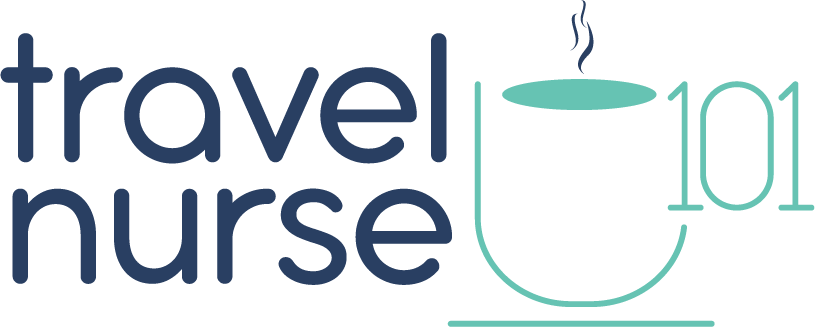There is a lot of confusion circulating online about whether nursing has been removed from the federal definition of a professional degree. The concern stems from the U.S. Department of Education’s revised draft list of “professional degree programs” released as part of the implementation of the One Big Beautiful Bill Act. Some nurses worry this change could affect how graduate nursing programs are funded.
To clarify the facts, bedside nursing degrees are not impacted at this time. The issue centers on how federal loans for graduate-level education will be categorized beginning in 2026. The goal of this article is to explain the situation clearly so nurses understand what has changed, what is only proposed, and what it may mean for advanced practice pathways moving forward.
Changes Under the One Big Beautiful Bill Act
Beginning July 1, 2026, students taking out their first federal loans for graduate school will be placed into one of two borrowing categories: professional students or graduate students. Professional students will have a lifetime borrowing limit of 200,000 dollars and can borrow up to 50,000 dollars each year. Graduate students will have a 100,000 dollar lifetime limit and can borrow up to 20,500 dollars each year.
These new limits matter because, historically, most professional programs had no federal borrowing cap. Fields such as medicine, dentistry, psychology, and advanced practice nursing relied on this expanded access to federal loans. How the Department of Education classifies programs moving forward will determine which students receive the higher borrowing limit.
The Longstanding Definition of Professional Programs
For many years, a professional program has been defined as one that requires graduate-level education, leads to licensure, and allows entry into a regulated profession. Under this definition, advanced-practice nursing and many allied health professions have always been included.
This group has historically included nurse anesthetists, nurse practitioners, nurse midwives, psychologists, physical therapists, occupational therapists, and speech-language pathologists. These programs require training beyond the bachelor’s degree and prepare graduates for independent or advanced clinical roles.
What Created the Current Confusion
In October, the Department of Education released a proposed update to the definition of professional programs for loan eligibility. This is not final and not law. The proposal would list only a limited set of fields as professional and removes the previous language that allowed additional programs to be included.
The proposed list contains medicine, pharmacy, dentistry, law, optometry, veterinary medicine, osteopathic medicine, podiatry, chiropractic, and theology. Advanced practice nursing, psychology, physical therapy, occupational therapy, and speech-language pathology are not included in the draft.
If this proposal were adopted as written, many healthcare graduate programs would be moved into the lower loan category. That could limit federal funding access, increase reliance on private loans, raise interest costs, and create barriers for students who cannot secure cosigners.
Where Things Stand Right Now
The proposed definition has not been approved. It is not in effect. It does not remove the professional status of nursing or any advanced practice role. Nothing has changed in regard to how nursing degrees are viewed at this time. The only issue at stake is whether these programs will qualify for the higher loan limit after 2026.
A public comment period will open, which will allow stakeholders to provide feedback before any final rule is adopted.
Depending on how institutions and the market respond, these new loan caps could either lead to tuition reforms that make advanced degrees more accessible, or shift the financial burden to private lenders, making graduate education more challenging for many students, especially those without significant family resources or cosigners.”
How Nurses Can Participate
Nurses and students will have the opportunity to submit comments to the Department of Education once the public comment period opens. Individuals can also contact their congressional representatives, especially those who serve on education or workforce committees. Sharing accurate information within the nursing community is essential so people can respond from a place of clarity instead of misinformation.
What We Are Doing
The American Nurses Association (ANA) has stated that it is working closely with coalition partners across multiple healthcare sectors to ensure a strong and coordinated response. ANA will submit formal public comments once the window opens and plans to lead a multi-layered advocacy effort urging the Department of Education to recognize nursing as a professional field within federal loan classifications. The organization noted that it will continue to monitor developments and advocate on behalf of the nursing workforce as opportunities for input arise.
Sign the petition here: American Nurses Association Inc | Nursing IS a Professional Degree
The Bottom Line
Nursing degrees have not lost professional status at this time. The discussion is about graduate-level loan classification, not bedside nursing or RN licensure. Only advanced-practice and other graduate healthcare fields would likely be affected, and that will only happen if the proposed definition becomes final. There is time to advocate, provide feedback, and ensure that the graduate programs that support the healthcare workforce remain accessible.
Advanced practice nurses, therapists, psychologists, and other graduate-trained clinicians are essential to patient care, especially in rural and underserved areas. Their ability to access graduate education directly affects the strength of the healthcare system.
I hope this breakdown brings some clarity during a moment when a lot of nurses are feeling uncertain. I’m not taking a side. I’m simply sharing information so our community can stay grounded, informed, and empowered to speak up if needed. We’re in this together, and I’ll continue to provide updates as soon as credible information is released.


